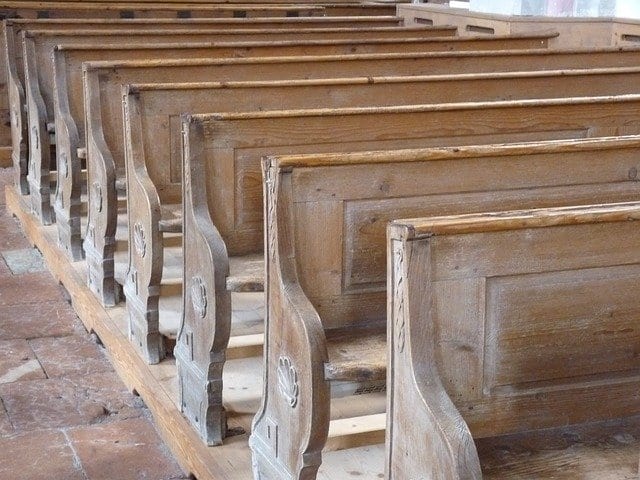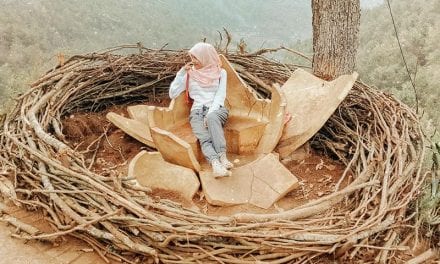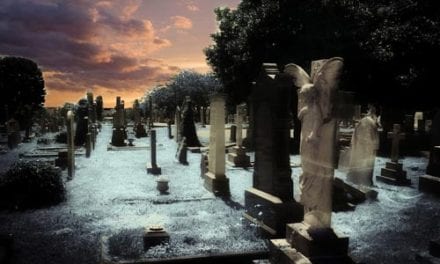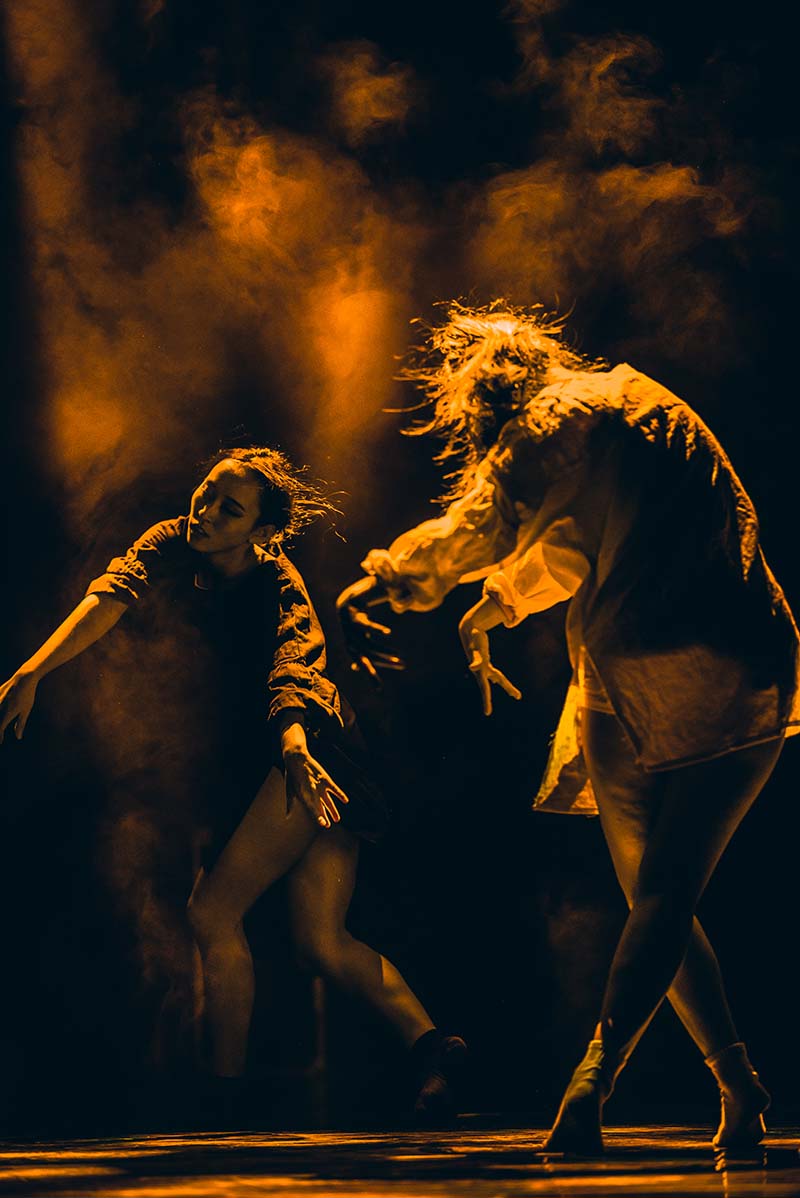The town was as bare as a pauper’s cupboard. It was perfect. Rufus would fill it with its own history. The town of Chloride, New Mexico had been reduced to a cluster of buildings stripped of its distinction by natural and human elements.
Rufus Seneca, president of the Rainmaker County Historical Society, hoped many would come to hear the heyday echoes of Chloride, once the big, silver buckle on New Mexico’s ore belt.
Rufus checked the time. It was five ‘till ten. A busload of tourists would arrive any minute. Rufus was proud of his presidential status. At 27, he was the youngest to helm any historical society in the history of New Mexico.
A bus pulled up to the brushy perimeter of the loose family of buildings. Rufus straightened his posture.
“Welcome to Chloride,” Rufus announced. About 25 men and women descended somewhat perilously from the bus that had traveled from Santa Fe. “It looks like you’re ready to move around a little after that ride.”
Rufus’s smile reverberated through the faces of new arrivals, most of whom were seventy-something females, their eyes crinkling with delight as they all moved in the same teetering, hunched position. “Follow me, folks.”
“If you look to your right, here was Marsh’s Apothecary where the people of Chloride went for their laudanum…” Rufus unfurled the script tightly wrapped around his memory. It was a smooth unwinding all the way to the other end of Chloride’s disjointed remnants.
“S’that a church out there? Kinda looks like it.” One of the few men in the group pointed to a building apart from Chloride’s main cluster, with a shaky, age-spotted hand.
Rufus frowned. He was glad the diocese had prohibited the historical society from restoring the church. The structure leaned away from its foundation as if it were unsuccessfully trying to escape. Rufus couldn’t blame it. The idea of a god was primitive, he thought.
“Good eye, sir. St. Cyril’s was built in 1888 and abandoned by 1928.” Rufus’s expression held none of the amusement it had up to that point.
Before the old man could ask the next question in his eyes, Rufus continued, “It burned down twice, two of its priests were shot and killed during Mass. Chloride was a pretty rough place back then. Cyril’s died when the town died.”
The old man’s eyes settled into satisfaction. “Sounds like it was cursed.”
Mouths gaping open with fatigue breathed out in faint agreement.
Might as well be cursed, Rufus thought.
The group shuffled back toward the bus, teetering again on knee joints even less reliable than tightropes.
“Thanks, folks.” Rufus waved as the yellow bus rolled off.
Rufus walked in the direction of the church. He had never cared to explore it. His only connection to religion was a disconnection.
Though he had been called ‘father’ by many, Father Paul Seneca never met his only child. Abigail Ross, the rectory housekeeper, found her priest-lover hanging in his bedroom as she was cleaning one morning, just a month before their child was born.
Abigail and Rufus left Cheyenne and Catholicism, for Santa Fe and atheism. Religion was a mutation of the concept of human hope – a distortion, Rufus thought.
He wandered toward the opening where a blood-red door once hung. The church released a musty breath. Rufus hesitated. He had never been afraid of history – he had inside-out examined Chloride even before the structural engineers began poking around in their protective face masks and hard hats.
He passed under the arch of the doorway and there was a brief narthex of which nothing remained to distinguish it as directly preceding a sanctuary. Wind and light passed through indiscreetly where panes once filtered all outside light.
Rufus stopped under the second archway, which was also missing its door.
Overhanging a church pew, a pair of large, dirty bare feet appeared in the dim light. Rufus startled at the sight of something human inside so uninhabitable a place. He opened his mouth to speak, but noticed something even more surprising. At the opposite end of the only pew left in the sanctuary, another body sat upright. The head was covered with a black lace veil. Rufus wondered if he had wandered not through a door, but a vortex.
He opened his mouth again, but instead of his own voice, he heard a low growl. A creature on four legs appeared next to the feet, which twitched at the alert.
“We’ve got guests, Doc – Teresa – Teresa.” A gruff voice near the feet spoke.
Rufus’s eyes adjusted to a mangy foxhound. The owner of the feet and presumably the canine sat up in the meantime.
The veiled presence didn’t move right away, and when it did, only the head turned around to look at Rufus, who squinted in the translucent darkness of the church to make out Indian features like his own. He could see sheer expanses of cheekbone. The eyes were dark and the hair thick and curly, peeking out from the black lace of the headpiece.
In his surprise, Rufus failed to admonish the trespassers.
“Dagger Gills – this is Doc – and Teresa.” Dagger stood up. He was middle aged, with wild gray and white hair that seemed to be moving even though it wasn’t. He wore a long-sleeved gray and blue flannel shirt over jeans that had seen better days. He smelled of cigarettes and body odor. His skin was the color of Oklahoma topsoil.
“Rufus Seneca – Chloride’s historian – I don’t think you’re supposed to be here – not my rule – the diocese’s.” Rufus walked down the middle of the sanctuary. Once tread by communicants and priests, it was now reduced to a dirt floor infused with the stench of mildewed earth instead of the fragrance of myrrh and frankincense.
Doc the foxhound was less ceremonious and slurped at Rufus’s other hand. His tongue was tickling, wet sandpaper. Rufus’s somewhat stern demeanor loosened. “I had a dog that looked a little like you when I was a kid,” Rufus squatted, letting the dog bathe his face.
“We didn’t know. I’ve been sleeping here for more than six months and Teresa’s been coming here longer – Terry how long you been coming here?”
Teresa nodded under her veil and spoke without turning from the empty space on the wall at the back of the sanctuary. “A year ago.” Though she only spoke three words, they were widened by her flat, unhurried Indian tone. Teresa turned back around to gaze at her empty wall.
Rufus wondered if she was insane, praying in a hollowed-out church. As for the man, he seemed like a vagrant and this was a free shelter. “Like I said, it’s not my rules, I’m just letting you know – I won’t say anything, but if the diocese catches wind –”
“They won’t – haven’t so far – took you this long to notice us.” Dagger argued good-naturedly through sad, light blue eyes.
Rufus nodded. They were ghosts in a ghost town. As long as they didn’t jeopardize his work, why should he report them?
“If it ain’t broke, I guess.” Rufus said to himself as he traded the darkness for the light of the living world. Dagger had resumed his horizontal position in the pew and Teresa was as still as a monument again.
~~000~~
The following morning, there was no busload of tourists to greet, but Rufus found himself in Chloride anyway. He carried a grocery sack containing fresh fruit and vegetables, bottled water, canned beans and dog food. He also brought bowls, plates, silverware and a roll of paper towels.
He never thought he would have a reason to enter St. Cyril’s a first time, let alone a second. As he approached the entrance, he wondered whether he had hallucinated a veiled woman, a dog, and his even scruffier owner.
No less pungent than his first introduction, the earth’s musty breath greeted Rufus as a stranger.
Teresa was absent but Dagger and his mutt were accounted for, represented by a familiar pair of dirty feet overhanging the pew. Doc appeared, sleepily stretching one hind leg behind the others.
The feet disappeared and Dagger appeared partially upright in his pew, wearing the same clothes and wild hair from the day before, rerunning the same sad-eyed grin. “Heyyyy, welcome back.” Doc slept soundly under Dagger’s feet.
“Where’s?” Rufus nodded toward the other end of the pew.
“Terry’s only here one day a week. Whatcha got there?” Dagger poked at the bag with curious eyes.
“Uh, look, you don’t have to take this, but I picked up a few things while I was at the grocery store.” Rufus approached the pew, offering Dagger a peek at the contents.
Dagger’s grin broadened. “Damn, that’s funny. You think…yep, you think I’m.” Dagger shook his head.
Rufus was confused. “You’re not…?” He couldn’t budge the last word.
“Nope. Don’t feel bad though. Happens all the time.”
“So you don’t live here?”
“Cyril’s? Nope. I’m here every day but I go home at night.”
Now it was Dagger who was a veiled enigma. Rufus studied him as if he were seeing him for the first time.
“I live in Sedona.”
Rufus downgraded enigmatic back to homeless with a generous helping of insanity. Sedona was a gated desert community a half hour west of Chloride where the gods of Silicon Valley slept in their private desert, just a helicopter ride away from their tech farms.
“You sure you mean Sedona?” Rufus asked.
Dagger’s grin shrank and his eyes grew more serious than sad. “I do.” Dagger breathed heavily through his nose. “I own three companies.”
Rufus’s eyes widened. “But you’re here all day?” Rufus sat down in the pew behind Dagger’s. The smell of pine filled his nose with mountainsides cloaked in wintery evergreens.
“This is my office.” Dagger’s grin magnified again. “I founded all of my companies, and nurtured them, but I work remotely now. I work here.” Dagger pointed to his head, only his index finger and thumb cooperated in the shape of a gun against his temple.
“Why this place?” Rufus looked around at the vacancy of the place. Religion had moved on from it, and so had civilization.
“It’s always quiet. And, I like it when Teresa is here. It’s even quieter – that doesn’t make sense, but it is. I can think when she’s here. You know she’s the mayor of a border town?”
Rufus was entranced by Dagger’s bulging eccentricities more than he pitied him. He was lured in like a child listening to a story.
Dagger went on. “Her son is one of the most notorious drug lords in Chihuahua. They write songs about him – like fairytales set to music. They say she keeps an arsenal behind the bar she owns in Diego – that’s the town that elected her.”
Rufus wanted to hear more fantastic assertions peeled from Dagger’s thinly stretched sanity, but his part-time bookkeeping job at a tattoo shop called him away.
“Look, I’ve gotta go to work, but help yourself to any of this.” Rufus pointed at the bag.
“You still don’t believe me,” Dagger’s eyes twinkled, and the equator-sized grin returned.
Rufus smiled, hoping it didn’t appear patronizing. “I’m just a tough crowd. My father was a priest who hung himself. Now there’s a fairytale right there.”
“We’re quite the gang of misfits, aren’t we?” Dagger turned away from Rufus, gazing at the blank space where only the memory of a sacrifice stared back.
Rufus wished he hadn’t brought up his origin story, but he had exposed Dagger and needed to expose himself a little. It was only fair.
Rufus nodded. “Seems like it.” Rufus wondered if he meant the three words, or if it was just an agreeable response.
Rufus left Dagger to his fill-in-the-blank wall and again traded dark for light as he left St. Cyril’s behind.
~~000~~
The following week, Rufus carried another sack full of groceries to the church. This time, Teresa sat alone.
“I brought this for Dagger, but you’re welcome to help yourself.”
Without turning around, Teresa answered, “He’s not here. He’ll be here later.”
Rufus wanted to ask if she was really the mayor of a border town, and if there were any songs written about her son, but he realized how ridiculous it sounded. She was just a middle-aged Mexican mujer counting her beads.
Rufus sat down in Dagger’s section of the pew. The air was bloated with his repellant aroma. He slowly turned to the right to look at the shadowy, veiled figure. She was still, other than her hands exchanging prayers for beads; a useless barter, Rufus thought.
Every now and again, he could hear distinctive shapes of words spoken…holy Mary, mother of God…hour of our death, but eventually he felt more than heard.
He thought of the clear, prismatic glass of the rosary he discovered hidden away in his mother’s bureau. It was the only relic of a life buried with a dead priest. He had been scolded for wearing it around the house. His mother ripped it from his tiny grasp, tearing open a few of the chains that held the beads. He was spanked for the first and last time. His mother gathered up what was broken and flushed it down the toilet while Rufus watched.
About a month later, Rufus’s mother passed down her newfound atheism to her son. Even in her final breaths, following a heart attack, she spoke fervently of a world set and kept in motion by its own centrifugal force, not at the whim of a creator. “And, this bunk of us becoming gods is bullshit. Don’t believe it. We aren’t gods. We’re only men.” she left Rufus with these words as she died in his arms before paramedics could arrive. It was a cold armor over his heart and mind.
Rufus had never heard the prayers of the rosary spoken. He closed his eyes, lulled into a submission of mind and body he had never experienced. He allowed the rhythm to settle completely over him. When he opened his eyes, he wasn’t sure how much time had passed, but realized he was late for work when he checked the time on his phone.
As he got up to leave, the prayers ceased. “Here, take this.” Teresa, just scraping five feet, stood up, offering Rufus her beads.
“I can’t take those,” he blockaded her gesture with his hands.
“Take it.” Teresa grabbed his hands and closed them around the beads.
“Why do you pray in a dead church?” Rufus asked while his hands were still clasped.
“Not dead. Just quiet.” Teresa released Rufus’s hands. “You take this, okay?”
Teresa returned to her spot at the other end of the pew and picked up where she had left off.
Rufus looked down at the beads. They weren’t glassy, but warm and wooden. He was late for work. He shoved the beads in his pocket.
~~000~~
Two days later, Rufus made enough dinner for four in case Teresa was in the pew and Doc was hungry. He wanted to thank Teresa for the beads, but mainly the thought of the homeless man and his dog being hungry nagged at him.
As he turned off the highway, onto unpaved, time-warped territory, Rufus’s eyes reflected flames engorging St. Cyril’s. He continued toward the church. No signs of life appeared. Rufus dialed ‘911’. Within half an hour, water hoses delivered moot relief. The crippled structure was put down at last.
What remained of a man and a dog were found.
Two days later, Rufus caught a headline in the local paper: Silicon Valley Pioneer Killed in a Church Fire Suspected of Arson. He went on to read the word bipolar and the phrase not medicated sprinkled frequently throughout the article. Sedona had lost Silicon royalty after all. He wondered whether Teresa knew. Surely, she did, but his curiosity drove him to confirm it.
Rufus drove the two hours south to the town Dagger had mentioned.
A mythical place only a few days before, Diego humbly rose out of the desert, not much more of a presence than Chloride. Rufus asked about Mayor Teresa and was pointed in the direction of an adobe cantina with a red rose painted on the front next to its name: Mother Teresa’s.
The place was still, other than a woman wiping down the bar. Rufus examined the woman more closely. In the light, without her veil, she was a woman like any other. Teresa stopped wiping the bar, disappearing for a second and reappearing with a bottle of tequila and two shot glasses. She poured the amber liquid into both and pushed one toward Rufus.
“To Dagger and Doc.”
Rufus raised his glass.
“They won’t write any songs in Silicon Valley about mi hijo’s father.”
Rufus’s eyes widened with enlightenment. He understood ‘hijo’ as son.
“You and Dagger?”
Teresa nodded, smiling at some unseen place beyond their conversation.
“Octavio had gringo blood and they killed him for that. They couldn’t just kill the gringo half, so they killed all of him. You remind me a little of him.”
Rufus sensed a betrayal toward his own mother rising not only in Teresa’s words, but also in his own voice.
“Where will you pray now?”
“In a church.” Teresa smiled. “Another.” She poured two more shots.
“What should we drink to this time?” Rufus asked.
“To sons.”
Two glasses clinked. The warmth of the tequila reminded Rufus of the warmth of the wood beads in his pocket. He wondered if his own father ever carried a rosary.
“Why Chloride?”
Now a dark veil fell across Teresa’s eyes. “I was very angry after Octavio was killed. I didn’t want to see God anywhere – even in a church. I had read about the church in the dead town – it was dead like I was on the inside. I started going and saying my rosary because the Virgin remained with me even when I didn’t want to see God. She was always a shadow. Dagger started coming at some point because his head was always everywhere at once, and in the dead church he said it was only in one place. He found peace listening to me, he said. But, it wasn’t me. It was always Her. Always the Virgin. She shadows everyone even when they don’t feel Her there.”
Rufus wasn’t sure if it was the tequila or something more intoxicating that compelled him to retrieve the rosary from his pocket and set it on the table between the shot glasses.
“We don’t need a church for this.” Teresa reached into her pocket and pulled out beads as glassy as those his mother had confiscated, only these were as blue as robin’s eggs and as clear as rain.
“I believe in God, the Father Almighty…” Teresa’s words soon gathered the momentum of a chant.
At one point, he realized his own words were carried across his lips by the same momentum. His chanting braided with Teresa’s until they were woven so tightly that they were indistinguishable.
In this entwining, the self at last evaporated and where it began again, Rufus didn’t care. It was only the old self anyway—the new self was born inside of a dead church to another dead father, and a mother he just met.
Rufus had never felt so alive.




















